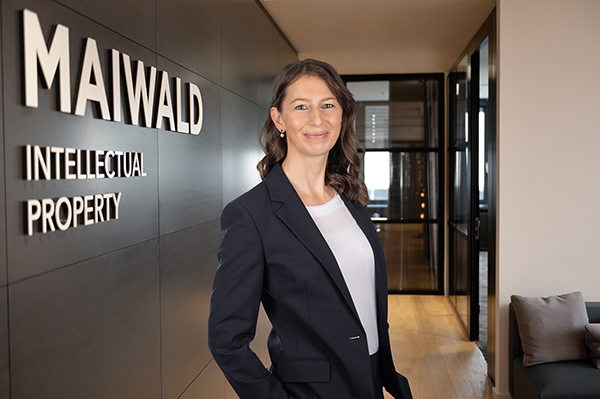In the course of our regular internal attorney seminar, Dr. Michaela Weigel-Krusemarck gave a presentation on current developments on the formal priority. The focus was on the consolidated decisions G 1/22 and G 2/22 of the Enlarged Board of Appeal of the EPO.
With this decision, the Enlarged Board of Appeal provides basis for future examination of the formal priority. The Enlarged Board of Appeal has decided that a transfer of the priority right is to be assessed solely according to the EPC. This means that national law is not (i.e. no longer) to be considered, thus departing from the previous EP practice of applying national law (e.g. T 1201/14).
As background: In particular, due to the former need in the US to file a patent application in the name of the inventors, the EPO was often confronted with the constellation that an EP application derived from a PCT application claimed the priority of a US application, wherein the applicants of the priority application differed from the applicants of the subsequent application. Whether there was an effective transfer of rights from the applicants of the US priority application to the applicants of the PCT or EP subsequent application was then (usually) examined by the EPO under US law – now not anymore!
According to the decision G 1/22 and G2/22, an implicit agreement, for example an implied transfer, is sufficient for a valid transfer, as the EPC does not provide any formal requirements for the transfer of the priority right.
The Enlarged Board of Appeal establishes a rebuttable presumption that the applicant is entitled to claim priority. This shifts the burden of proof to the effect that the party contesting the right to priority must prove that this right is actually lacking. The intention of the Enlarged Board of Appeal is to ensure that the priority is challenged less frequently in opposition proceedings.
The Enlarged Board of Appeal explicitly leaves open the question of the so-called PCT joint applicants approach. Instead, the Enlarged Board of Appeal establishes the concept of an implied agreement, according to which the mere fact of the joint filing of a PCT subsequent application is sufficient for the parties to apparently have entered into an implicit agreement to the effect that an additional subsequent applicant may invoke the priority right conferred by the filing of the priority application by the other subsequent applicant(s). Such an agreement may only be implied if all applicants of the priority application or their successors in title (“all applicants”) are also applicants of the subsequent application. However, even if this is not the case, the rebuttable presumption in favor of the priority right of the subsequent applicants still applies.
In this context, it is interesting to look back at the decision T 844/18 (CRISPR), in which the Board of Appeal denied the validity of the priority claim due to violation of the “all applicants” requirement. Against the background of the new decision of the Enlarged Board of Appeal, it is questionable to what extent the application of the “rebuttable presumption” would have led to a different result here.
It remains to be seen how the Opposition Divisions and Boards of Appeal will implement the new concepts introduced by the Enlarged Board of Appeal in G 1/22 and G 2/22, e.g. standards for rebutting the presumption. The Maiwald colleagues Dr. Martin Huenges and Dr. Kerstin Wolff, who are familiar with the decisions T 2360/19, T 2516/19 and T 2689/19 due to their involvement in other CRISPR cases, were able to report on this. These decisions are already based on the new concepts of the Enlarged Board of Appeal, and (even) in these cases, the presumption of priority entitlement could not be rebutted.
Meanwhile, the Federal Court of Justice has already adopted this new EPO case law – at least for DE parts of EP patents (BGH Sorafenib-Tosylat, BGH Happy Bit).
